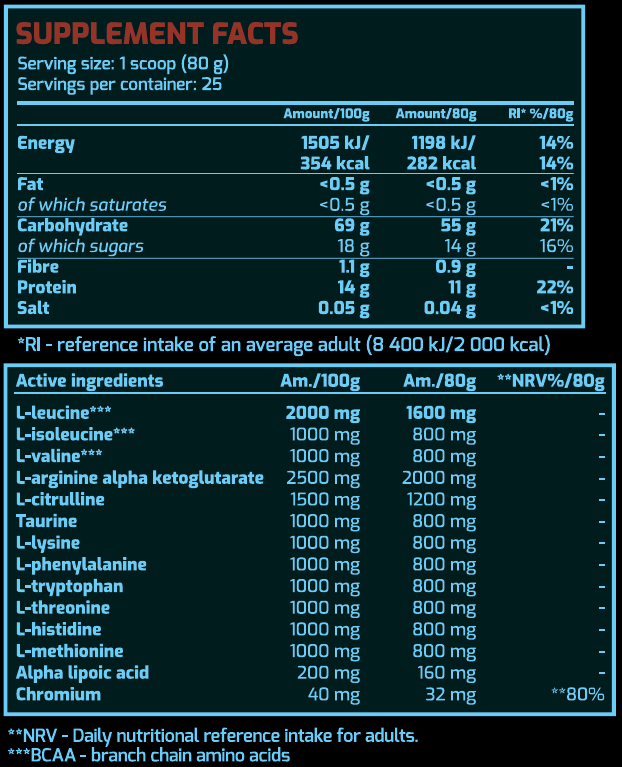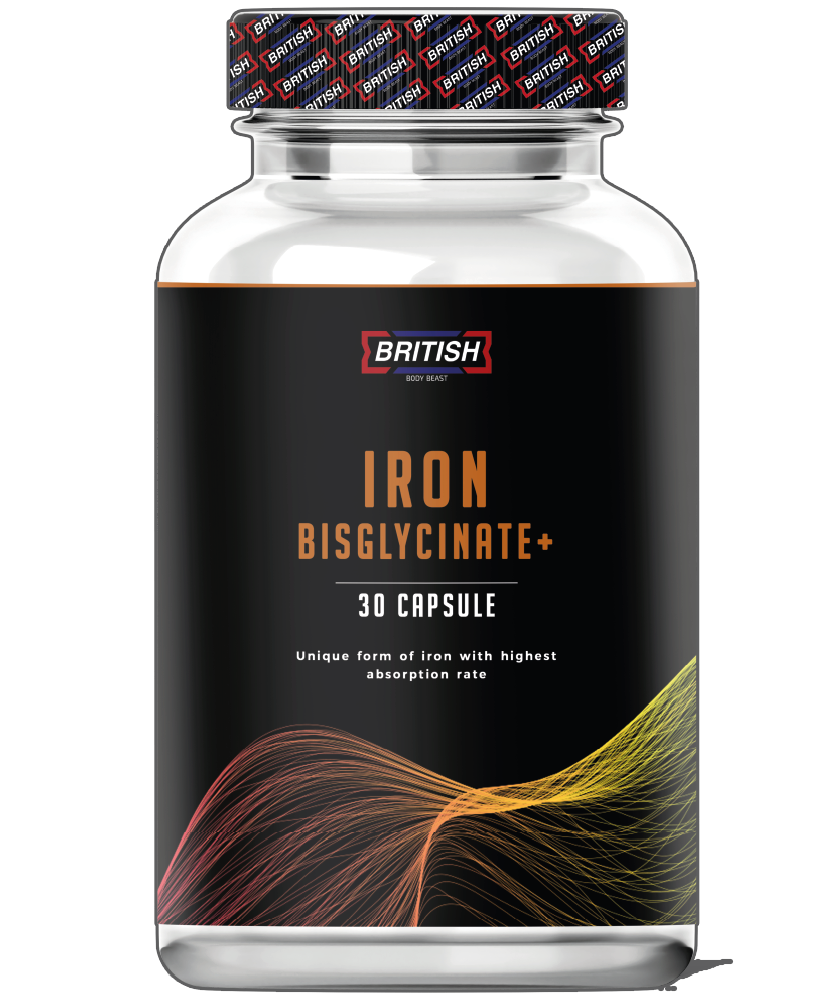Search Products

Product Gallery
2 images

Highlights
Premium Quality
British-made excellence
Scientifically Formulated
Research-backed ingredients
Natural Ingredients
Pure & effective
Post-workout
Free international shipping on orders over £399.99
Key Benefits
Specifications
Description
Post-workout nutrition is crucial for bodybuilders for several reasons, helping with recovery, muscle repair, and performance improvement.
Muscle Recovery and Repair
After intense exercise, muscles undergo microtears, and post-workout nutrition is essential for their repair and rebuilding. Consuming protein, especially from sources like whey, provides the amino acids needed to heal these muscle fibres. This process not only aids in recovery but also encourages muscle growth, which is vital for any bodybuilding goal.
Replenishing Glycogen Stores
During an intense workout, the body’s glycogen stores, which are derived from carbohydrates and act as the primary energy source during exercise, are depleted. Consuming carbohydrates post-workout is critical because it helps restore these glycogen levels. This replenishment ensures that muscles have the energy needed for future workouts, preventing fatigue and ensuring better performance in subsequent training sessions.
Reducing Muscle Breakdown
Post-exercise, the body is in a catabolic state, meaning it’s breaking down muscle tissue for energy. Proper post-workout nutrition, particularly a combination of protein and carbohydrates, helps shift the body into an anabolic state, where muscle growth and repair can occur. This reduces muscle breakdown, promotes muscle protein synthesis, and helps your muscles recover efficiently.
Optimizing Hormonal Environment
Nutrition after exercise can positively impact hormone levels, which are essential for muscle recovery and growth. Consuming a meal with protein and carbohydrates after a workout can help increase insulin levels, a hormone that facilitates the uptake of nutrients like glucose and amino acids into muscle cells. This process aids in muscle recovery and growth, creating a favorable environment for optimal results.
Reducing Muscle Soreness
After intense training, delayed onset muscle soreness (DOMS) is common. Post-workout nutrition helps to reduce this soreness by providing the body with nutrients that reduce inflammation and support tissue healing. Including anti-inflammatory compounds like omega-3 fatty acids or antioxidants can further help alleviate soreness, enabling quicker recovery and reducing discomfort.
Rehydration and Electrolyte Balance
During exercise, especially high-intensity or prolonged workouts, the body loses fluids and electrolytes through sweat. Rehydrating after exercise with water or an electrolyte-rich drink is essential for restoring hydration and maintaining proper muscle function. This helps to prevent cramping, ensures proper cellular function, and enhances recovery after exercise.
Enhanced Muscle Growth (Hypertrophy)
Consuming the right nutrients post-workout helps to support muscle hypertrophy, or muscle growth. A combination of protein, to stimulate muscle repair and rebuilding, and carbohydrates, to provide energy and restore glycogen levels, ensures that the body has the resources it needs to maximize muscle growth. Consistent attention to post-workout nutrition is crucial for long-term muscle development.
Key Nutrients to Focus on Post-Workout:
- Protein (such as whey, lean meats, or plant-based options): Assists in muscle repair and encourages growth.
- Carbohydrates (like rice, oats, and fruits): Essential for replenishing glycogen stores and aiding muscle recovery.
- Fats (in moderation): Omega-3 fatty acids help reduce inflammation and promote recovery.
- Fluids: Necessary for rehydration and restoring electrolyte balance.
By prioritizing post-workout nutrition, bodybuilders can improve recovery time, maximize muscle growth, and ensure their bodies are prepared for the demands of future workouts. This practice is key to optimizing training results and reaching long-term bodybuilding goals.
Powered by Froala Editor
Certified Quality
Enjoy free UK shipping on orders over £79.99
Free international shipping on orders over £399.99
Hassle-free returns
24/7 customer service
Product Details
Key Ingredients
Formulated with premium, scientifically-backed ingredients for maximum effectiveness.
Recommended Usage
Each product has its own specific usage instructions. Please follow the directions provided for the best results.
Frequently Asked Questions
Is this product suitable for vegetarians?
Yes, this product is suitable for vegetarians and contains no animal-derived ingredients.
How should I store this product?
Store in a cool, dry place away from direct sunlight. Keep container tightly sealed.



